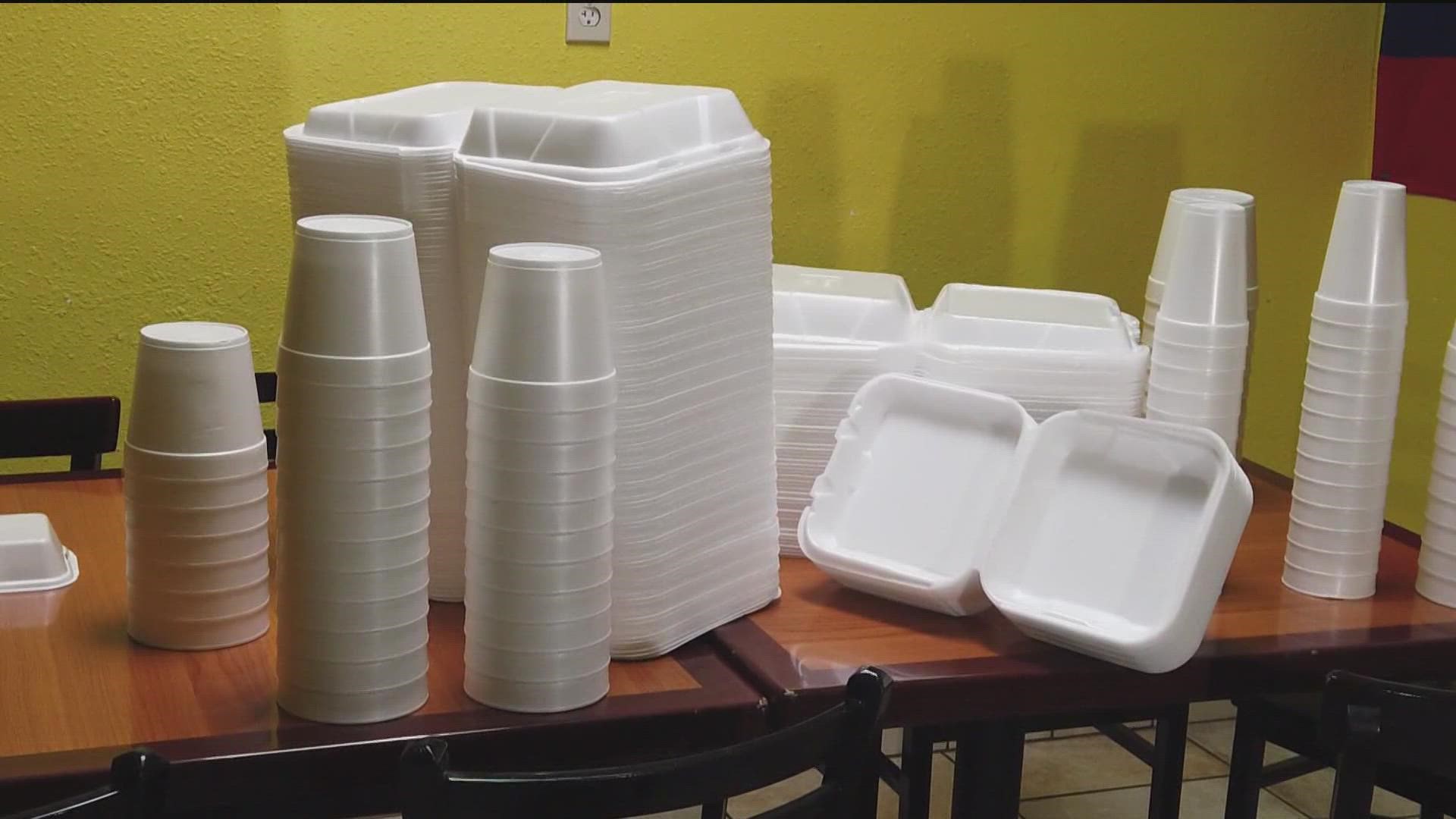SAN DIEGO — San Diegans may soon see new rules for single-use plastics, especially Styrofoam products such as to-go food containers and cups.
"San Diego is ready to say goodbye to Styrofoam," said Councilmember Joe LaCava, moments before the San Diego City Council's Environment Committee voted 4-0 in favor of the ordinance, which will now go to the full council for final approval.
"We're turning the corner on these products that are bad for the environment," said LaCava. "I think everybody has seen these scraps of polystyrene on our beaches in too many places."
The City Council initially passed this ordinance nearly four years ago and was held up due to litigation filed by restaurants and foam container companies. But after the completion of an Environmental Impact Report, the city is now ready to move forward by joining 130 other cities in California with bans on polystyrene.
Styrofoam products are not biodegradable and often litter our beaches and waterways.
"Sixteen years of cleanups reveal that foam debris is the second most common item found. In 2018 and 2019, volunteers removed 58,000 pieces of foam debris from our beaches," said a representative from Surfrider during public comment at Thursday's meeting.
"Polystyrene is especially hard to remove because it breaks into hundreds, even thousands of pieces."
The ban would apply to polystyrene products such as to-go food containers, egg cartons, food trays, and even Styrofoam coolers, ice chests, and pool toys.
Regarding single-use plastics like utensils or straws, the new rules stipulate that restaurants should only give those out upon request.
"We're saying do not automatically give that to the consumer, the buyer of takeout food, because we see too often that people just discard them and don't even use them," said LaCava.
Antojitos Columbianos is a Mexican restaurant in Sherman Heights that still uses polystyrene food containers and cups.
When they eventually transition away from Styrofoam, they say they'll have to raise prices because of added costs for other types of containers.
"We're going to adjust the menu in the future because we have to because there is no other way," said Andres Rodriguez, manager at Antojitos Columbianos.
The restaurant is already developing creative ways to save customers from paying that added expense.
"We try to figure it out like if a customer brings their own containers, like glass containers," said Rodriguez.
"That's what we do now. You pay fifty cents less for the orders to go when you bring your containers."
After the years-long delay, city leaders are more than ready to move forward on the ordinance.
"It's time to say enough is enough. We know it's a problem. We know we can identify the source of that problem," said LaCava. "And it's time to ban that product and start working on other things that also affect the quality of life and the environment,"
The new rules will be considered at a meeting of the entire city council on November 15, and if the ordinance is passed, the rules will go into effect on April 1, 2023.
WATCH RELATED: The Rules of Recycling (2021)

